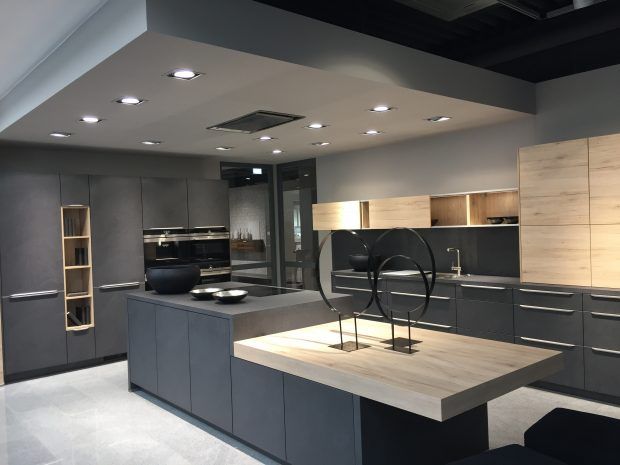Sustainable kitchen remodeling has become a growing trend as homeowners increasingly prioritize eco-friendly upgrades for their homes. Making environmentally conscious choices when renovating your kitchen not only reduces the environmental impact but can also enhance the efficiency and aesthetics of the space. Whether you’re planning a complete kitchen overhaul or simply looking for smaller, greener updates, there are various sustainable options to consider that will make a big difference in the long run. One of the most impactful eco-friendly upgrades for a kitchen remodel is choosing sustainable materials for cabinetry, countertops, and flooring. Opting for materials that are renewable, recycled, or reclaimed can significantly reduce the environmental footprint of your kitchen. Bamboo, for example, is a highly sustainable material because it grows quickly and regenerates after being harvested. For countertops, recycled glass, reclaimed wood, or even composite materials made from recycled paper or plastics offer durable and beautiful alternatives to traditional stone or granite.
 Energy efficiency is another essential aspect of sustainable kitchen remodeling. Upgrading to energy-efficient appliances is a significant step towards reducing energy consumption and utility costs. From refrigerators and dishwashers to ovens and microwaves, Energy Star-rated appliances use less electricity and water, making them an eco-friendly choice. Additionally, incorporating LED lighting into your kitchen design is a simple yet effective way to reduce energy use. LED lights consume far less energy than traditional incandescent bulbs, and they last much longer, reducing waste. Water conservation is another key element to consider when designing a sustainable kitchen. Installing water-efficient fixtures, such as low-flow faucets and energy-efficient dishwashers, can help reduce water usage without sacrificing functionality. A smart faucet, for instance, allows you to control water flow and temperature, minimizing waste. Dishwashers with water-efficient cycles can also significantly reduce the amount of water used for cleaning dishes. By choosing water-saving appliances and fixtures, you can help conserve one of our most precious natural resources while also lowering your water bills.
Energy efficiency is another essential aspect of sustainable kitchen remodeling. Upgrading to energy-efficient appliances is a significant step towards reducing energy consumption and utility costs. From refrigerators and dishwashers to ovens and microwaves, Energy Star-rated appliances use less electricity and water, making them an eco-friendly choice. Additionally, incorporating LED lighting into your kitchen design is a simple yet effective way to reduce energy use. LED lights consume far less energy than traditional incandescent bulbs, and they last much longer, reducing waste. Water conservation is another key element to consider when designing a sustainable kitchen. Installing water-efficient fixtures, such as low-flow faucets and energy-efficient dishwashers, can help reduce water usage without sacrificing functionality. A smart faucet, for instance, allows you to control water flow and temperature, minimizing waste. Dishwashers with water-efficient cycles can also significantly reduce the amount of water used for cleaning dishes. By choosing water-saving appliances and fixtures, you can help conserve one of our most precious natural resources while also lowering your water bills.
Recycling and waste reduction are also critical components of an eco-friendly kitchen and find more information on www.westphallremodeling.com/remoadeling/kitchen-remodeling/. When remodeling, consider how you can integrate recycling and composting systems into the design. For example, installing built-in recycling bins or composting units can make it easy to separate waste and reduce the amount of garbage sent to landfills. Additionally, choosing durable, high-quality materials and products can extend the life of your kitchen, reducing the need for frequent replacements and minimizing waste over time. Finally, sustainable kitchen remodeling should incorporate non-toxic and low-VOC volatile organic compounds materials, such as paints, finishes, and adhesives. Many conventional building materials and finishes release harmful chemicals into the air, contributing to indoor air pollution and posing health risks. Opting for low-VOC products helps improve indoor air quality, making your kitchen healthier for you and your family. By selecting sustainable materials, energy-efficient appliances, water-saving fixtures, and non-toxic finishes, you can create a kitchen that is both beautiful and environmentally responsible.